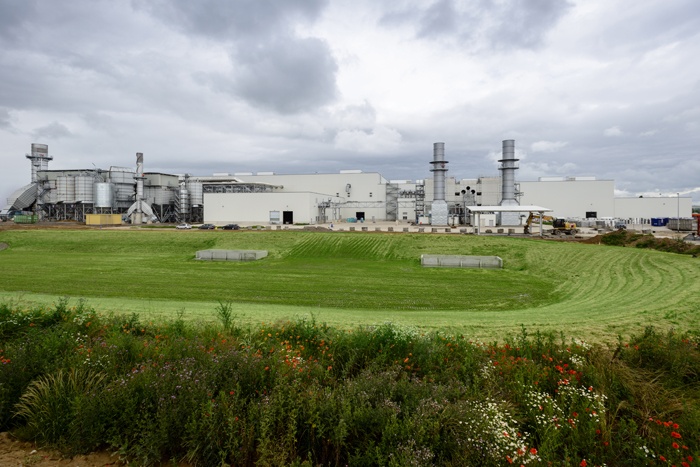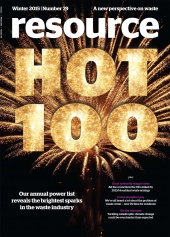Pedal to the metal
In October 2014, aluminium rolling and recycling company Novelis officially opened its new €200-million (£161-million) recycling facility in Nachterstedt, Germany.

Covering 60,000 square metres of land adjacent to the company’s rolling mill, the new centre can annually process a massive 400,000 tonnes of aluminium scrap (largely used beverage cans (UBCs)), doubling Novelis’s recycling capacity in Europe, and making Nachterstedt the ‘world’s largest aluminium recycling facility’.
Comprising a range of technologies for sorting, de-coating, melting and casting many different scrap types, the facility was built with both economic and environmental efficiency in mind. Erwin Mayr, Senior Vice President of Novelis and President of Novelis Europe, explains: “We thought: ‘Why don’t we move into sourcing sheet ingots of our own and at the same time move from a high share of prime usage into a high share of scrap usage by really committing to our 80 per cent recycled content target [by 2020]?’
“The Nachterstedt investment is the single biggest step that the company has taken worldwide to hopefully reach 80 per cent and beyond by the end of this decade.”

Vincent Nguyen, Director of Recycling at Novelis Europe, adds that the location of the facility was key, as it is “at the heart of the scrap market availability”, and that to take advantage of that, “everything in the plant is just bigger than anything else in [Novelis’s] system”, from the size and scale of the machinery to the material produced: the 1,200 ingots cast at the centre every day are double length at 12-metres long and weigh 25 tonnes each.
In a nutshell, the centre works by shredding and sorting incoming scrap metal, following which the metal is heated in the de-coater until any ink and coatings are vaporised (this also reduces the time needed in the furnace, as the metal is already heated up). Once at the foundry, the aluminium goes through a dual-chamber furnace, where it is melted and stirred before being treated for impurities. The molten aluminium is then poured into moulds and slowly cools to form ingots, which are eventually transported by train to Novelis’s manufacturing facilities; the train returns to the centre with aluminium coils that are cold rolled and finished.
 This article was taken from Issue 79
This article was taken from Issue 79Nguyen says that the technology, though closely-guarded for competitive reasons, is cutting edge: “The rolling plant’s manufacturing capabilities include the latest cold-rolling technology, a state-of-the-art laser cutting workshop, and continuous annealing and finishing lines… We have very significant shredding capabilities, but beyond that we have specific X-ray sorting technology, which is not usually implemented in plants of this size, and this is actually enabling us to purchase and process scrap grades that escape Europe.” Indeed, the plant can handle 18 different scrap streams, including taint/tabor and low-grade UBCs.
“We have a series of technologies, including the Novelis dual-chamber with specific designs including magnetic stirring, all of which have been designed to minimise the oxidation of the material, minimise dross formation [the build up of solid impurities], and in the end have the best energy efficiency and also have the best metal recovery.”
The furnaces also have fuel-efficient regenerative burners and burner management systems to reduce the amount of energy used. Any waste heat is used to heat the building (around 19 megawatts) or is transformed into electricity through an organic Rankine cycle that uses the heat to produce vapour to turn turbines (producing 1.7 megawatts of power).
With a €62-million (£51-million) expansion now underway at the facility to deliver a new 120,000 tonne-per-annum automotive sheet finishing line (in response to the ‘steadily growing demand for aluminium automotive sheet for light-weight vehicle structures and body panels’), we’re sure that this is not the last we’ll be hearing of the Nachterstedt recycling centre. 





